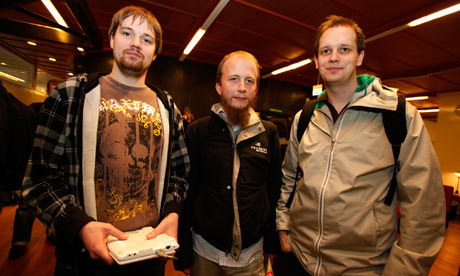According to Symantec, its upcoming Cyber Readiness Challenge will be the ultimate in cyber-defense readiness practice
The hackers, 50 of them, will be participating in the biggest-ever simulated “hack attack,” in the Israeli version of the Symantec Cyber Readiness Challenge – a worldwide and ongoing event in which “white hat hackers” (those who use their hacking powers to help, not hinder) will attempt to get to the bottom of a simulated “industrial espionage” attack against a large corporation.
By putting participants in the hacker’s shoes, said Symantec, it enables them to understand their targets, technology and thought processes so they can ultimately better protect their organization and themselves. Symantec, which makes anti-virus and security software, works in countries around the world, where it holds similar challenges, seeking out the best white-hat hackers, sometimes hiring them as well, the company said.
A hacker contest is like any other one, in that it has goals, rules, milestones, and points awarded. In the contest, hackers must conduct a cyber-investigation of an attack against a company’s site, figuring out who hacked them and how they did it, by counter-hacking shady Internet sites and servers. Points will be given for degree of success in hacking into the suspects’ servers, and for achieving 40 milestones (such as getting access to passwords, installing spyware, etc.). The winner of the contest will get an opportunity to talk to and work with top Symantec security personnel at the company’s headquarters in the U.S., all expenses paid.
The Challenge will take place at the annual Cybertech International Conference, sponsored by IsraelDefense, the Prime Minister’s National Cyber Bureau, and the Ministries of Foreign Affairs and the Economy. Speakers will include top figures and cyber-security professionals from Israel and the world, including Rick Kaplan, head of IBM Israel, Erek Kreiner of Israeli security company FiveC (he is also a former head of Israel’s National Information Security Authority), Dr. Orna Berry, head of EMC Israel, and David Chinn, cyber-security director of international consulting group McKinsey and Co., among others.
Sessions will include discussions on securing financial data, how to keep hackers from physically planting cyber-spy devices on equipment, disaster recovery, and privacy issues in the digital era – all issues that have been in the news recently, with the revelations on hackers stealing credit card information from large retail stores in the U.S., and the revelations on the gathering of information by the National Security Agency in the U.S.
Dozens of cyber-security start-ups will also be showing off their wares at the event, among them Seculert, which has been working on the recent hack attacks against Target and other retailers in the U.S., in which tens of thousands of customers had their credit card information stolen, and Covertix, which created a document technology that prevents unauthorized individuals from opening and reading files, alerting managers when a document’s security is compromised, automatically blocking usage if unauthorized use is suspected. Prime Minister Binyamin Netanyahu will open the event, speaking to participants about Israel’s cyber-defense policies and challenges.
But the highlight of the event promises to be the Symantec event, said Gili Netzer, VP of marketing at Symantec Israel. That’s because instead of talking about cyber-defense, the hackers will be practicing it. “The challenge is going to be very difficult, presenting participants with problems they have not come across yet,” said Netzer. “We intend to push them to their limit. In a world where hackers attack organizations, companies and whole countries at will, we need to be one step ahead of them, prepared to deal with attacks using the most advanced hacker techniques.”
Source : The Times Of Israel


